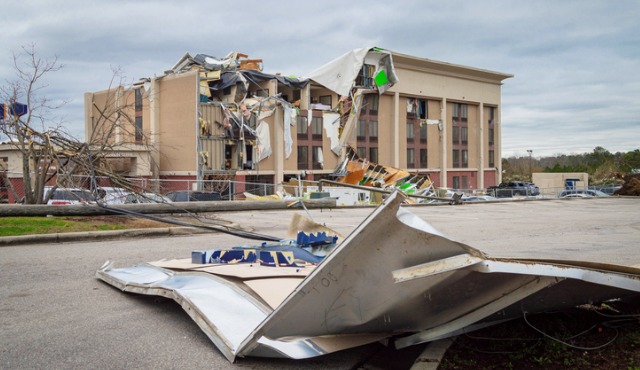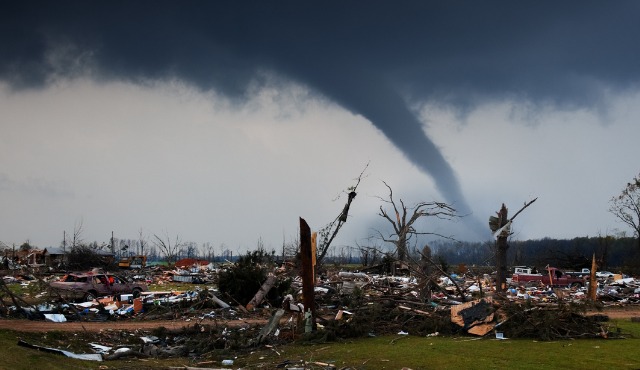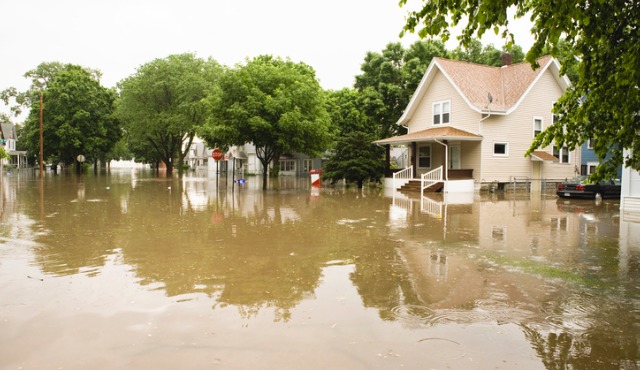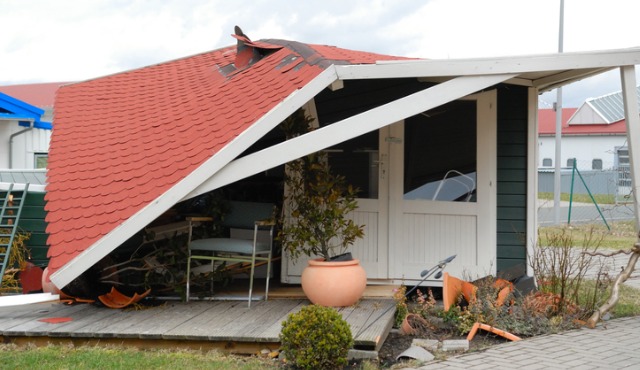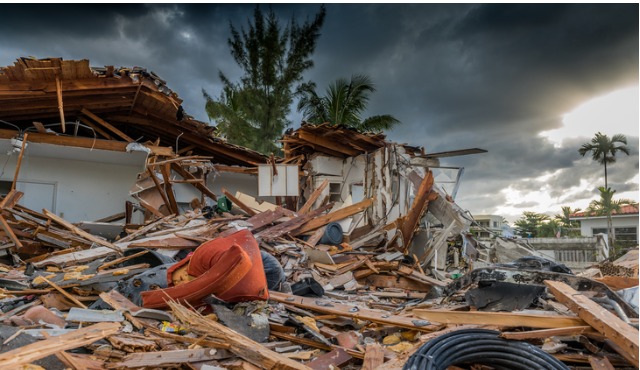By Tracey Hawkins
In Part 2 of this article contributed by former agent and 26-year national safety educator Tracey Hawkins, she continues to builds upon her mission to show how safety planning can be a tool to grow business and ensure the safety of real estate professionals, homeowners and renters alike.
Related: When the Unthinkable Happens: Natural Disaster Preparation in Real Estate PT. 1
Below, hear from four more of the safety experts gathered by Hawkins in order to provide agents, brokers and consumers with life-saving tips and resources:
An Industry Leader’s Response to a Disaster
“As President-Elect of the Kentucky REALTORS® our priority was to our members and ensure they were safe and had their needs met when a deadly tornado struck in December of 2021," says Mike Inman, 2022 President, Kentucky REALTORS®.
The tornado occurred during Inman's leadership transition period. Still, because the association is organized and connected statewide, they were able to move quickly to disburse needed funds and begin to collect and deliver additional funds, food and other badly needed supplies.
Know Where and How to Access Resources
“As part of the National Association of REALTORS® (NAR) we had access to the REALTORS® Relief Fund, which provides funds to pay for temporary lodging, rent and mortgage payments for displaced people," says Inman. "As a result, we were able to obtain a record $1.5 million within days to begin providing relief."
Kentucky has gone through a number of small-scale disasters like flooding and isolated tornadoes in recent years. Inman's association's response was always quick and effective, but nothing prepared them for this magnitude of a disaster.
What Real Estate Leaders Need to Know When the Next Natural Disaster Strikes
- Have a plan! Inman says he can't overemphasize this. He recommends having a disaster plan and committee or task force to prepare for the future.
- Get connected with state homeland security agencies, emergency services and disaster response agencies. Have a seat at the table. They don't know what you can do until you tell them.
- Have the means to collect, safeguard and disburse funds and aid. Inman states his association is now in the process of creating a 501(c)3 organization to do this long term.
“As REALTORS®, we're most interested in homeownership and private property rights," says Inman. "Therefore, it's only natural when homes are threatened that we become involved immediately to assist our members, clients, and the public with the preservation of their homes and with quickly restoring them to their homes. What we will learn will help other state REALTORS® organizations be more prepared for the future.”
Preparing Agents, Brokers and the Community for Disaster is Good Business
When Tami Bonnell, co-chair at EXIT Realty Corp. International, learned about the Crisis Knowledge Management (CKM) Certification Program, she responded instantly.
“I care enough about what our people receive, so I took the course myself before we started training our people," says Bonnell. "I learned a great deal, and the value is incredible.”
Agents and brokers should serve their communities and understand that the opportunity to teach and prepare for disaster preparedness will positively impact communities. It's also an important way for real estate company leadership to ensure that agents are prepared.
The more value you provide, the more loyalty brokerages will get from agents, brokers and consumers. Additionally, educating agents and communities is a great way to show respect, eliminate some liability, improve skillset and help personalize services.
Consumers will reward and be loyal to agents who help them in times of crisis. Agents will do more business if they help someone during a disaster, and it helps protect or save a family member or their home. According to Bonnell, training has already helped her agents be more prepared; EXIT has offices across the U.S. and in Canada.
“We're already seeing areas where homes will not be able to be insured, such as areas in California where wildfires are prevalent," says Bonnell. "The more you can disclose to potential buyers and sellers, the more the real estate professional will be respected, so it's important to be part of the solution."
There is tremendous fear regarding man-made and natural disasters; they escalate every year. Educating the community will provide peace of mind and much less likelihood for chaos if and when something happens, while also preventing more loss personally and financially.
There’s an App for That
Brokerages can research innovative technology to protect their agents and staff. For example, Jim Schneiker, VP of sales at Ayantra, helped develop the Ayantra InstaAlert, which can be carried, put in a pocket or keychain, or worn on a lanyard. It works as an electronic call for help with a GPS feature.
With past disasters, including the collapsed condo in Florida this past summer, or in any situation where a person could go missing, an app like this could provide a lifeline and assist in a rescue," says Schneiker.
If you know a storm or disaster will soon be approaching. In that case, you can set a check-in timer on the app that says if you don’t check back in after 4, 6 or 12 hours; it automatically sends alerts via text and email to your list of contacts you set up in the app.
If a storm is actively approaching (i.e., tornado warning), and you don’t have time to set up the check-in timer, the device has impact detection. If jarred or bumped, after 30 seconds of no response, an alert would again be sent to a predetermined list of contacts.
NAR to the Rescue
Leigh Brown, broker/owner at One Community Real Estate and VP of the REALTOR® Relief Foundation, tells us that the REALTORS® Relief Foundation was created after the terror attacks of 9/11 to respond to housing needs. In the 20 years since the RRF was created, it has donated more than $34,000,000 and assisted more than 17,000 families (and growing) after natural disasters.
The relief funds cover security deposits, mortgage payments and temporary housing. It's purpose is to get your neighbors and their families under a roof while they put their lives back together.
“One of the most beautiful things about the foundation is that the overhead is covered by REALTORS®, meaning that 100% of donations go back into communities," says Brown. "As with the work that most REALTORS® do, this is for entire communities, not just REALTORS®."
Real estate professionals are there first and fast because they're an army of good, according to Brown. Evidence of this success is that the RRF approved and sent funds to Kentucky, Tennessee and Arkansas about one week after the recent tornadoes that devastated those areas.
Any monetary gifts to the REALTOR® Relief Foundation can be made at NAR.realtor/RRF or by texting RRF to 71777 today.
 Tracey "The Safety Lady'' Hawkins is a former agent and a 26-year national safety expert/educator, keynote speaker, safety content subscription creator, writer and a pepper spray/safety product retailer. Catch her at this year's NAR annual conference speaking about safety and lessons learned. Her site is: safetyandsecuritysource.com.
Tracey "The Safety Lady'' Hawkins is a former agent and a 26-year national safety expert/educator, keynote speaker, safety content subscription creator, writer and a pepper spray/safety product retailer. Catch her at this year's NAR annual conference speaking about safety and lessons learned. Her site is: safetyandsecuritysource.com.


